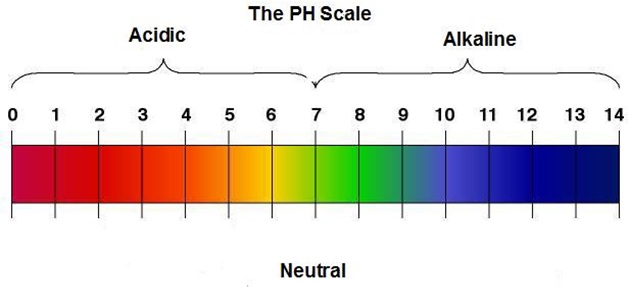What is Alkaline Water?

Alkaline water has a higher pH level than regular drinking water. Because of this, some advocates of alkaline water believe it can neutralize the acid in your body. The “alkaline” in alkaline water refers to its pH level. The pH level is a number that measures how acidic or alkaline a substance is on a scale of 0 to 14. For example, something with a pH of 1 would be very acidic and something with a pH of 13 would be very alkaline. Normal drinking water generally has a neutral pH of 7. Alkaline water typically has a pH of 8 or 9. However, pH alone isn’t enough to impart substantial alkalinity to water.
pH
Looking at the pH scale, a person might get the impression that anything with an alkaline pH would neutralize acids—and acids in the human body. But if this were true, then eating overly-cooked meat would reduce acidity in the body. It does not. Cooked meat is very alkaline; yet it contributes to acidity in the tissues of the body. And a lemon—one of the most acidic fruits—is well known to alkalize the body and to support a healthy, balanced pH. Likewise, the addition of alkaline minerals to water (calcium, magnesium, sodium, potassium etc.) raises the pH, but does not contribute to the neutralization of acids. Why? How to check your water Ph?
Buffers neutralize acids
Neutralization of acids depends on the presence of buffers. For example, if you add a weak acid to a glass of water with a pH of 8 that has no buffering capacity, the pH will immediately drop—just as you’d expect. But, if you add the same amount of acid to a glass of buffered water, the pH will barely change. A buffer neutralizes the acid, leaving the solution’s pH unchanged. Buffers contribute to alkalinity which is defined as the ability to neutralize acids. Alkalinity is different from the term alkaline which simply refers to pH. In water and in the human body, buffers are predominantly bicarbonates. They neutralize acids by scavenging hydrogen ions (H+).
The consumption of acids or bases does not necessarily balance cellular pH. And while drinking alkaline water sometimes increases urine pH, it is not an indicator that the body’s pH is in balance. When measuring the fluids of the body, (particularly saliva and urine) several factors should be interpreted together to get an accurate picture. Equally important measurements of these fluids are: resistivity/conductivity, specific gravity, and rH2. One measurement without the others can be misleading. Measuring the pH of urine (a reflection of what the body is letting go of) is an oversimplification. Increased urine pH could also mean that the body is having to get rid of excessive alkaline minerals that are not in a form the body can utilize.
Alkaline water: Is it Healthy or not?
If water is alkaline because of the presence of bicarbonates, it’s alkaline pH represents alkalinity which is the ability to neutralize acids. This water is typically only slightly alkaline, yet because of its buffering capacity it will assist the body in the removal of acidic waste. On the other hand, if water is alkaline without bicarbonates, it has little alkalinity and it does not have the capacity to neutralize acids. This kind of alkaline water can be detrimental.
The ocean is an example of a highly buffered solution. It is loaded with bicarbonates and fulvic acids. This allows the ocean to digest the acidic wastes from its large biological population without damage to the water or to its inhabitants. Prior to the onslaught that has hit the Earth’s oceans, dilute, micro filtered seawater, was one of the healthiest beverages on Earth.
Alkaline: ionized water
This brings us to the subject of alkaline ionized water — produced by electrolysis in a machine called a water ionizer. Ionizers produce unnaturally alkaline water by splitting the water molecule. Alkaline minerals in the water end up as hydroxides (attached to the OH- ion). These compounds are not recognized by the body. If a person’s kidneys are functioning well, they will be excreted in urine. If not, they may end up as arterial plaque or as mineral deposits in joints and other tissues. There are other problems with alkaline ionized water.
Nature creates coherent liquid crystalline water using movement and weak electromagnetic fields. Those who sell ionizers believe that the strong electric current used during ionization produces coherent liquid crystalline water. It does not. Although electric current causes water molecules to align in the direction of the electric current, the overall degree of structure in the water is reduced. Water that has been treated in this manner is no longer capable of carrying the finely-tuned signals and other vibratory information that water is intended to carry within the human body.
Note:
Alkaline ionized water can be therapeutic for short periods of time but it should not be consumed on a regular basis. It may contribute to arterial plaque, calcification of joints, and cardiovascular problems. In the authors’ opinion, consumption of this water for an extended period of time, is an invitation for trouble.
Since the digestive process begins in the stomach—an extremely acidic environment—alkaline water (with pH over 8.5)—even if it has bicarbonates— should not be taken with meals. You might be surprised to discover how many people who drink alkaline ionized water end up with digestive trouble—and they have no idea it was caused by the water.
